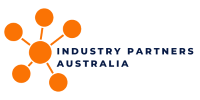Introduction to Agile
Training Provider: Efficiency Works
Delivery Method: Online

Agile continues to be one of the most popular project and program methodologies of recent times. With its roots in IT and concepts borne out of Lean, organisations and individuals with an understanding of Agile are at a distinct competitive advantage, delivering products and services more quickly and more aligned to the customers value with the lowest development costs.
Agile today is as relevant for software designers as it is for product developers and knowledge workers. With the customer experience and level of service expectations often the differentiator for a customer’s choice for your product and service, being Lean and Agile is as important as ever.
What Will I learn:
This course will help you to participate in Agile teams, understand and then think Agile and decide if Agile is relevant to your business and if you should explore the methodology further.
It will help you to understand the Scrum naming conventions for Events and Artefacts and this introductory course will help you decide if your organisation’s culture is ready or indeed in need of Agile.
Finally, you will know when a company or team states they are Agile if they truly are.
Agile is a great compliment to the Lean Six Sigma Methodology and ‘Competitive Systems and Practices’, the only accredited Lean Six Sigma training recognised in Australia.
What Outcomes will the training provide?
When to use Agile, versus Other Methods: This section describes the different types of project life cycles you can use to manage your project, develop a product, or bring a change about in a company. The Agile Practice Guide goes into four main project life cycles: Waterfall, Incremental, Iterative, and Agile. There is also “Hybrid” – a combination - and you will come across each of these in your career.
- The Agile Mindset and Principles: The Agile manifesto and mindset is where it all began in 2001, and soon grew into the practices behind one of the fastest growing project management and product development methodologies of the new millennium. Here you will explore this and its contrast to other project approaches including the 12 clarifying principles.
- The Agile Core Practices: These are the core Agile practices from the Agile Practice Guide and are a great way to see if a team is really Agile, even when they may call themselves something different. This is direct from the Project Management Institute and Agile Alliance.
- Agile and Lean Frameworks: These are the Agile and Lean frameworks you will come across in your Agile career, ranging from popular and highly used team frameworks through to program and enterprise level frameworks.
- Delivering in an Agile Environment: This section describes Agile delivery and using Agile to implement an Agile way of work in your organisation.
- Bonus Content: Learn through real life scenarios and a bonus Agile Project Charter template you can use immediately.
Who will benefit from attending this training?
The Agile methodology, concepts and frameworks can be applied to any work environment where business results and customer value and the resulting outcomes are a strategic imperative.
The knowledge components of these courses will help address the needs of professionals who are involved in identifying, delivering, managing and leading continuous improvement or product/ service development projects.
This course is suitable for:
- Executive Managers – wanting to understand how Agile can provide competitive advantage
- Senior Managers – providing oversight of project teams, considering Agile as a capability, or acting as Project Sponsors, Product Owners or Scrum Masters
- CI / BI Managers – seeking unique approaches to product and service development
- Project Managers – looking to expand their skill sets and knowledge
- Business and process analysts
- IT staff
- L&D staff
- Team members participating in or supporting Agile projects
- All employees who want a basic understanding of Agile, the language, the concepts, the opportunity.
What is the duration of this training?
3 - 4 hrs

Want to know more about this training?
Contact us to help with your enquiry.
